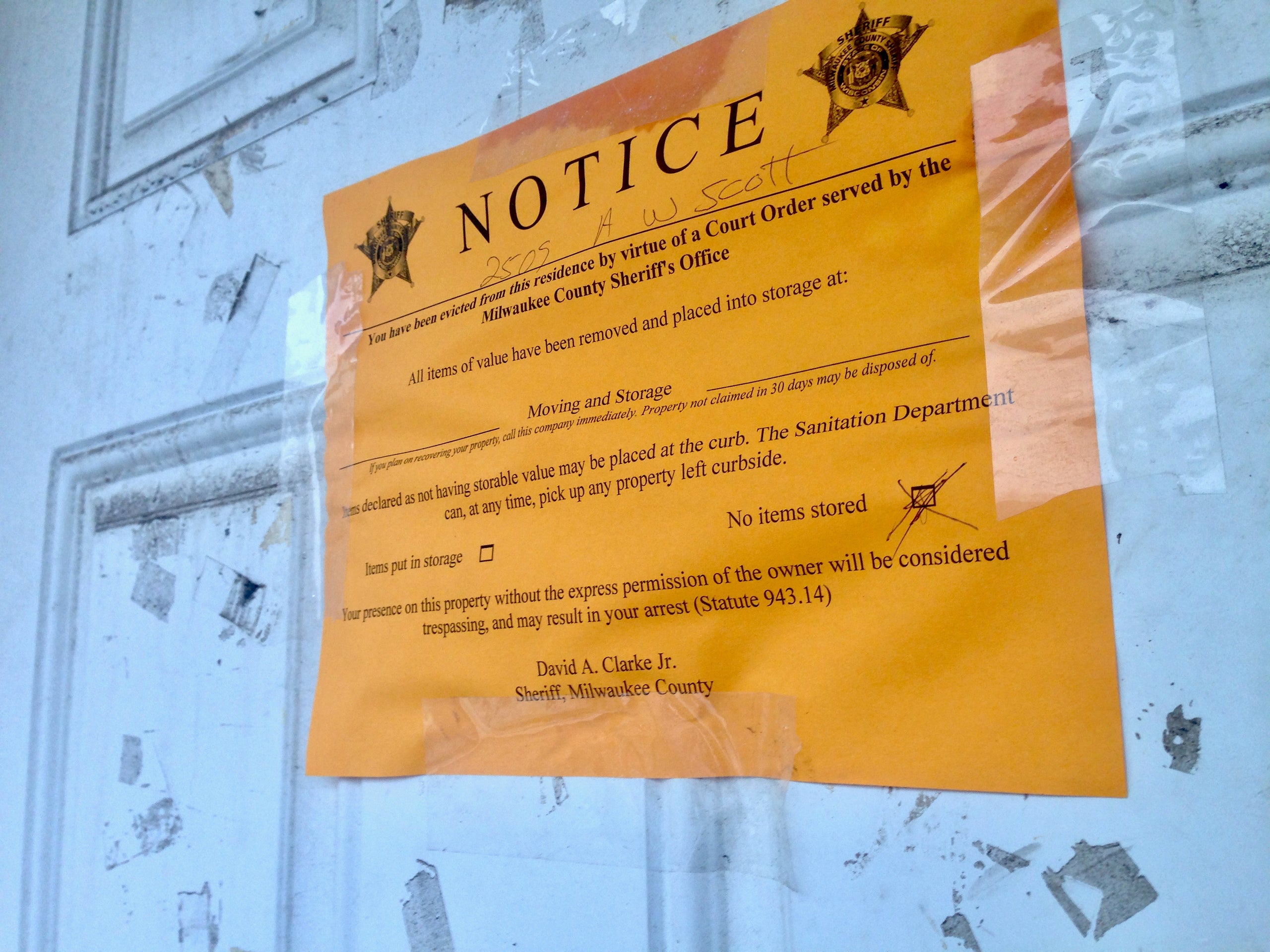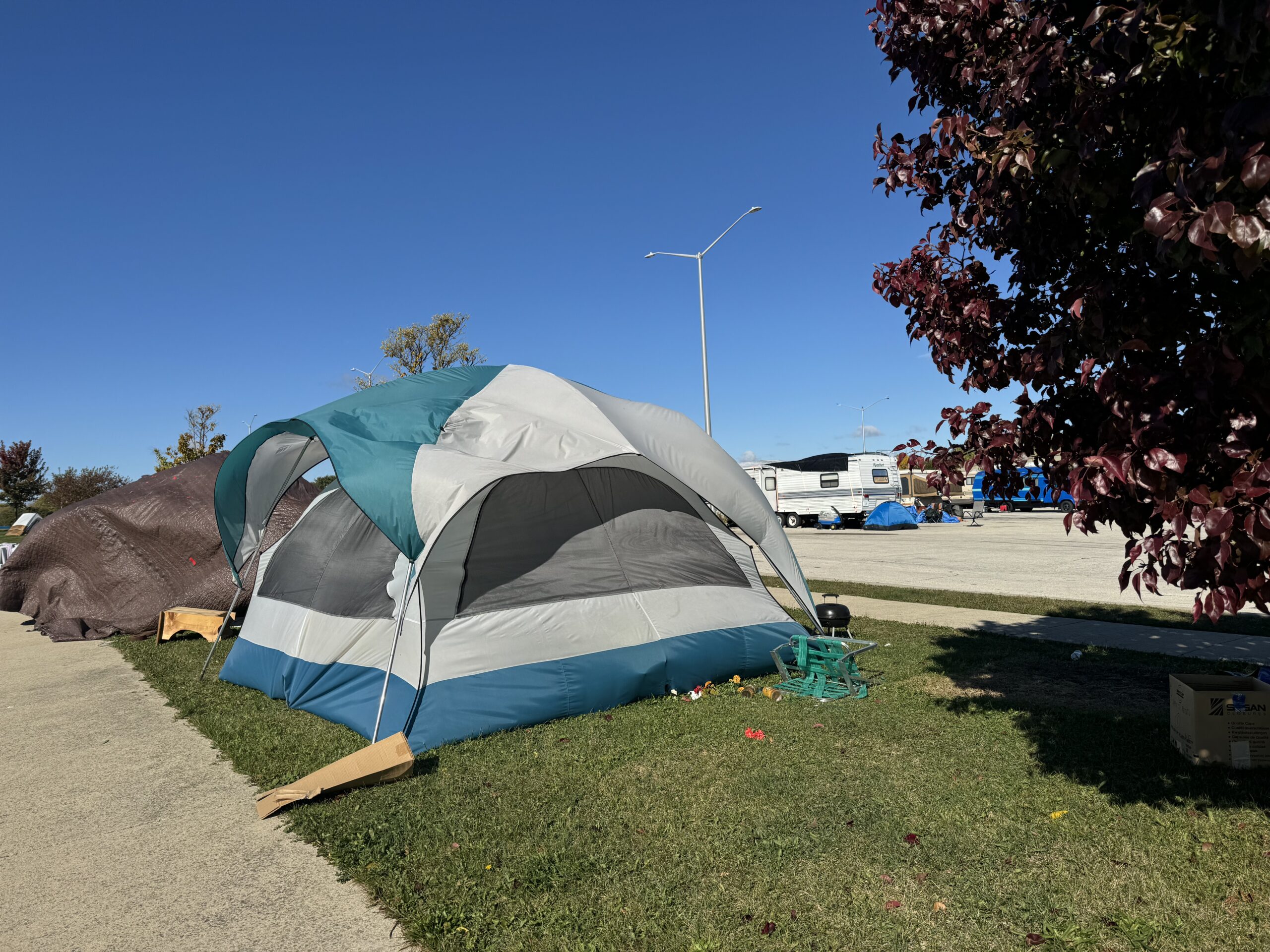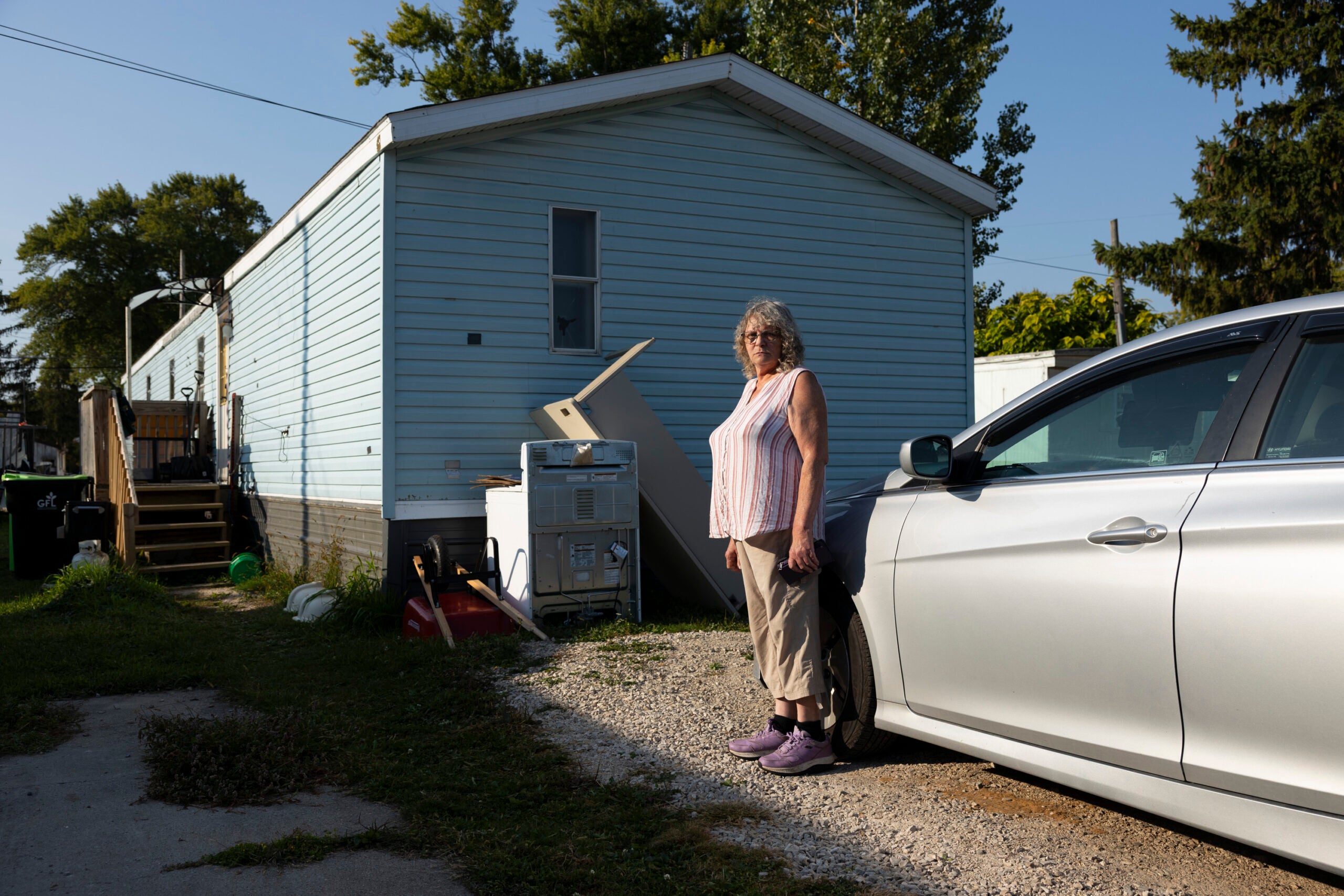Housing advocates hope a new eviction defense program launching in La Crosse County will help keep more people in housing and reduce the number of people experiencing homelessness in the area.
The City of La Crosse, La Crosse County and the La Crosse Community Foundation each contributed $60,000 to fund a two-year pilot program at Legal Action of Wisconsin’s La Crosse office. Amanda Schamens, managing attorney, said the funding will allow the nonprofit’s attorneys to be on site at the county courthouse to provide free legal representation to anyone facing an eviction starting at the end of June.
She said the main goal is to help tenants resolve claims through mediation rather than in court.
News with a little more humanity
WPR’s “Wisconsin Today” newsletter keeps you connected to the state you love without feeling overwhelmed. No paywall. No agenda. No corporate filter.
“A lot of times an attorney can help the tenant and the landlord work out a stipulation, either the tenant needs more time or to work out a payment plan,” Schamens said. “An attorney can be really helpful for that, explaining to the tenant what their rights are and what their rights aren’t, and can work with the mediator to get that resolution.”
But Schamens said many tenants facing eviction never make it to mediation because they don’t show up for their initial court date to contest the eviction.
“If they don’t show up, then they’re not contesting the matter and the eviction is automatically granted by default,” she said. “That happens all the time because people don’t know what to do and or there isn’t an attorney that they can talk to beforehand.”
Hetti Brown is an executive director of Couleecap, a community action agency in southwestern Wisconsin that offers housing assistance and operates a Tenant and Landlord Resource Center in La Crosse. She said there are many reasons why someone may not show up for court, including the fact that people facing eviction are going through a broader time of financial hardship.
“Having to go into a courtroom situation, not understanding your rights, not understanding the procedures that you have to follow, it’s very intimidating,” Brown said. “When you add in other barriers, like transportation barriers or child care barriers or even getting time off work to go to the courthouse, it just presents an unattainable situation for many people.”
Brown said there has been a critical lack of safe, affordable housing in the La Crosse area for years. But the situation has worsened as the price of basic living expenses like utilities and groceries have increased sharply.
“I think evictions that we’re seeing now are the downstream results of those issues,” she said. “We saw many families struggling with these issues before the pandemic and the pandemic only made things worse. Now that COVID-19 relief programs are starting to end, we are seeing an increase in the number of people seeking eviction assistance.“
Schamens said convincing a landlord to give a tenant more time, either to catch up on rent or move out, can be a big win for tenants. She said many people only get a five or 14-day notice from their landlord before an eviction filing, putting people at risk of falling into homelessness.
That’s an important consideration in the City of La Crosse, which has seen a significant increase in the number of unsheltered people in the community since the start of the COVID-19 pandemic.
Brown said more time before an eviction could allow residents to work with assistance groups to find housing that is more affordable or better suited for their situation.
“That takes time when you live in a market where rental vacancy rates are lower than the national average and where there’s a lack of affordable housing,” she said. “By giving people more time to stabilize financially and to search for housing that will fit their financial needs, that helps everybody including landlords and the community as a whole.”
Even if an eviction case is dismissed by a judge or through mediation, Schamens said having the case on a tenant’s legal record is a serious deterrent for future landlords. She said her group’s attorneys have also been helping clients ask for these cases to be sealed to protect a person’s ability to continue renting.
Schamens said the eviction defense program in La Crosse is modeled after similar programs in Milwaukee and Madison that have been successful in keeping people housed.
Legal Action of Wisconsin’s Eviction Defense Project in Milwaukee was recognized last year by a national nonprofit as a model for the country. A survey by the University of Wisconsin-Milwaukee found that 90 percent of the project’s clients had their eviction cases dismissed.
“This pilot program is going to see how these bigger programs can work in a smaller city and still be incredibly beneficial to those in both the City of La Crosse and the county,” Schamens said.
Brown said La Crosse is not alone in seeing an increase in evictions in recent years and many communities across the state are struggling with a lack of affordable and safe housing options. She said addressing that problem is the only way to stop the flood of evictions in La Crosse and other cities.
“We need a bridge to get to that point, as more housing units are being brought into the market,” Brown said. “Hopefully, through programs like this, and through other efforts in the community, we can get to the point where we don’t need as many eviction prevention solutions.”
Wisconsin Public Radio, © Copyright 2025, Board of Regents of the University of Wisconsin System and Wisconsin Educational Communications Board.







